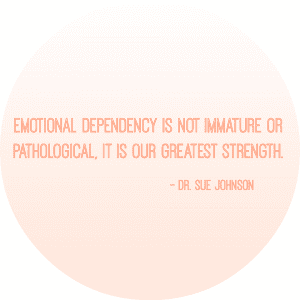Emotionally Focused Therapy
Ashley Adams, MFTI does much of the couple and family work at Reunion and below, she discusses the practice of Emotionally Focused Therapy.

At Practical Recovery, our goal is to give clients the necessary tools that empower them to make healthy choices. One such choice is the option to participate in couples therapy and family therapy. Although this work is highly recommended (in most cases), clients have the option to decline. We may also offer their loved one individual therapy with another provider who is not working with the resident, as a way to provide additional support in conjunction with the couples/family therapy. Before the first session occurs, the family or partner will fill out a number of brief questionnaires and have some basic understanding of what emotionally focused therapy is. Below is a brief summary of how we will address addiction while fostering secure attachment bonds using EFT.
EFT is usually a short term (8-20 sessions), structured approach to couples therapy formulated in the early 80’s by Dr. Sue Johnson and Les Greenberg. Since then, Sue Johnson has further developed the model, adding attachment theory to further understand what is happening in couple relationships. EFT is also used with families and individuals. A substantial body of research outlining the effectiveness of EFT now exists. Research studies find that 70-75% of couples move from distress to recovery and approximately 90% show significant improvements.
EFT gives us the tools to integrate an attachment-based focus into addiction treatment at all stages from pre-contemplation where substances users and families often live on the roller coaster of addiction, through the contemplation state where one sees unhealthy defensive mechanisms such as denial and blame, and into the action of cleaning up or reducing use while reengaging with loved ones. Couples and family distress usually comes from negative communication patterns that can escalate quickly and cause people to feel misunderstood and upset. For individuals not attending couples or family counseling, the distress can come from a relationship or from some triggering event which leads to a negative mood and can feel paralyzing or overwhelming, eventually leading to bad choices.
This reengagement with partners and family creates new found security which in turns lessens the chances of relapse. A new positive cycle can be created in couples and families that supports sobriety, growth and healing.
In the first stage of treatment, we will help you slow down and identify the sources of any negative patterns or triggers so you can gain some mastery over them. We help couples and families to really hear each other so everyone feels understood, and problem solving becomes easier.
During the second stage of EFT, we’ll help you uncover and address your unmet needs. We help couples and families express their needs to each other in ways that actually leads to fulfillment. We help individuals recognize and find healthy ways to assert their needs. Any past hurts and injuries will be addressed – couples and families will repair and reconcile, while individuals will heal internally and move towards acceptance and peace.
In the final stage, we will help you create new patterns of thinking, communicating, and acting in order to strengthen your gains. We will also help you to recognize the early warning signs that you might be headed backwards, and devise a plan to prevent that from ever happening.
